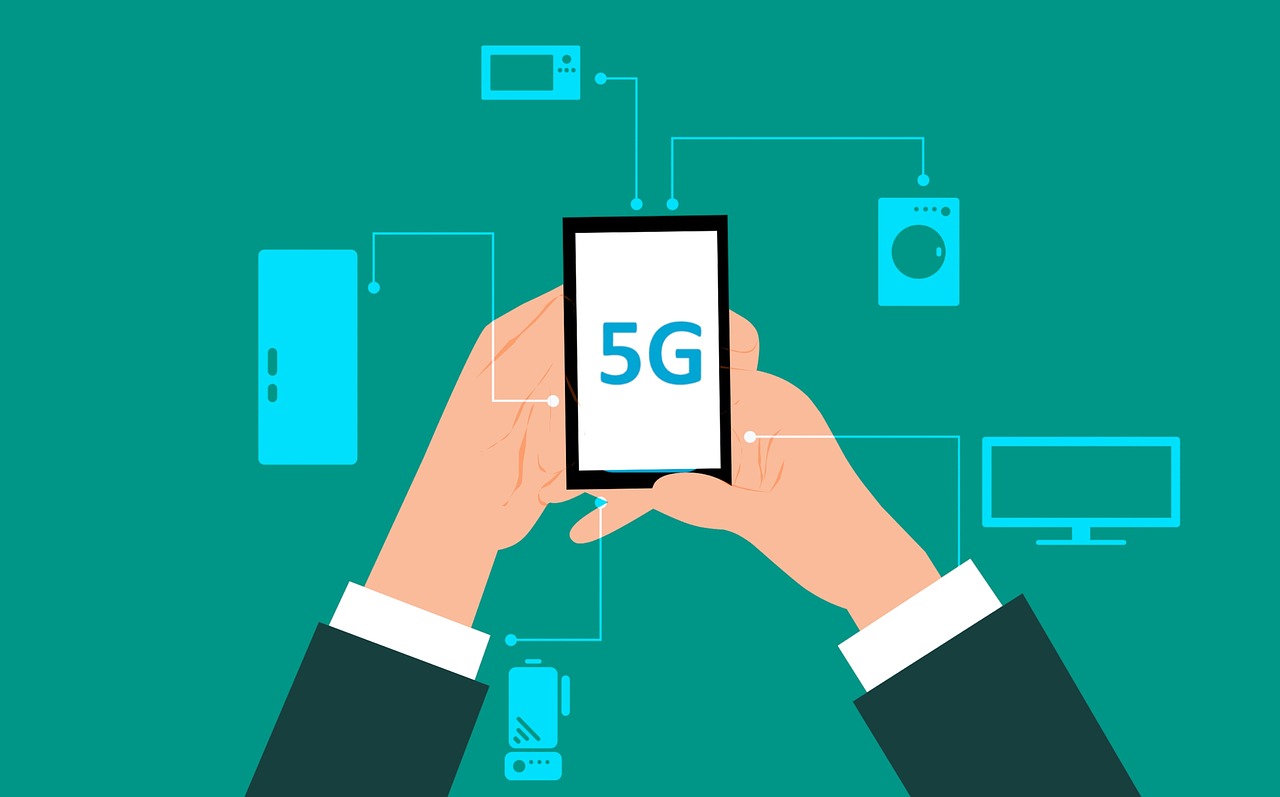 Contributing editor Glenn Rogers is back this week with his thoughts on the 5G revolution that’s about to hit the communications sector. Glenn is a successful investor and businessman who has worked with private equity and venture groups on a number of projects leading to successful exits for the investors. Previously, Glenn held senior executive positions in both Canada and the U.S. He lives with his family in southern California.
Contributing editor Glenn Rogers is back this week with his thoughts on the 5G revolution that’s about to hit the communications sector. Glenn is a successful investor and businessman who has worked with private equity and venture groups on a number of projects leading to successful exits for the investors. Previously, Glenn held senior executive positions in both Canada and the U.S. He lives with his family in southern California.
Glenn Rogers writes:
By now most of you will be aware that the next revolution in cellular service is on its way. I’m speaking about the 5G rollout that is well underway worldwide, with many companies expecting deployment to begin late in 2019 and accelerating in 2020.
Now this would be a normal technology story but for a political drama that is unfolding at the same time. It’s a drama in which Canada is in the middle, much to Ottawa’s discomfort. This would be the deportation hearings around Meng Wanzhou, the CFO and daughter of the founder of Huawei, one of the major suppliers to the 5G rollout. Currently she is out on $10 million bail, able to move around Vancouver with a GPS bracelet as long as she is back home by 11:00 pm. She announced she is suing Canada over illegal arrest after the Justice Department agreed to allow the U.S. extradition request to proceed to the hearing stage.
Allegations of espionage
In case you have missed it, Huawei is high on the Trump enemies list, given that it is alleged that the company’s equipment could be used to spy on the U.S. and its allies – sort of like an electronic Trojan horse. The company denies this, but the U.S. is pressuring cell companies to use other suppliers in place of Huawei and pushing its European allies to do the same. In fact, the U.S. is considering a total ban on the company’s products. Australia and New Zealand have already banned Huawei.
Huawei has been the low-cost provider and has had great success penetrating the global marketplace but this pressure against them could really hurt. In Canada, Telus has already agreed to partner with Huawei and that contract would be hard to unwind, as would those in other countries that have already committed to Huawei as a provider.
It’s entirely possible that a lot of this might get ironed out if a trade deal is struck between the U.S. and China. But there’s a history of bad blood here. The Chinese government banned Cisco Systems after the Snowden revelations on Chinese cyber-espionage, saying that the company’s routers were configured to allow the U.S. to spy on China, so we cannot be certain how this will play out.
Meanwhile, why all the fuss about 5G and who will benefit if Huawei is banned from installing equipment in certain jurisdictions? Firstly, 5G is a major step forward. It is incredibly fast, the equivalent of having a fiber connection in your hand. You will be able to download a full-length movie in seconds. You may be able to replace your cable modem at home. But it has far reaching applications beyond consumer uses. The internet of things requires more and more bandwidth, with autonomous driving cars, remote medical applications, and many more. Moving to 3G and 4G produced evolutionary changes in telecommunications. The switch to 5G will change everything and the market is huge, Stockholm-based Ericsson estimates that by 2024, 5G subscribers will reach 1.5 billion, with coverage blanketing 40% of the global market.
Companies poised to profit
So, who could benefit from all this? Ciena (NDQ: CIEN), Juniper Networks (NDQ: JNPR), Cisco Systems (NDQ: CSCO), and two Scandinavian entries stand out. They are Nokia (NYSE: NOK) and, my pick for the month, Ericsson (NDQ: ERIC).
Ericsson (the legal name is Telefonaktiebolaget LM Ericsson) already has secured some major 5G deployment contracts around the world and they are particularly strong in the U.S. If European countries turn away from Huawei, Ericsson is well positioned there as well. The Swedes are well liked around the world with no natural enemies, so they don’t draw unwanted attention to themselves.
The company returned to growth last year, generating $201.8 billion in sales with an operating profit of $1.2 billion (figures in U.S. dollars). Obviously, their margins should be better but as 5G rolls out that picture should improve, and the company did generate $4.3 billion in free cash flow.
The stock pays an annual dividend. Last year it was $0.12592 per share, to yield 1.4% at the current price. The charts look good.
All that said, Chinese companies will continue to be a force since they hold 1,529 patents around 5G, compared to only 14% of the necessary patents held by U.S. companies.
Whichever way this all works out, 5G is real and the rollout has already started. Many companies will benefit, and I believe Ericsson is well positioned to be one of them.
Action now: Buy with a target of $12. The stock closed on March 8 at $9.21. Note that Ericsson trades as an American Depository Receipt (ADR), with one ADR equal to one share of the common stock.
This article originally appeared in the Internet Wealth Builder newsletter on March 11, 2019. Subscribe to the IWB for three months:
